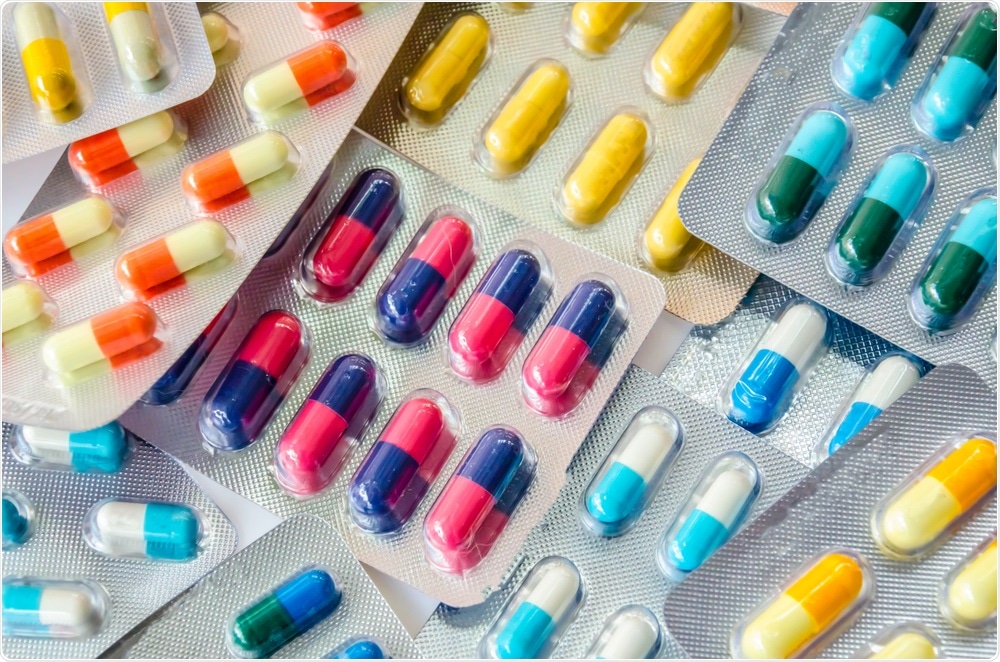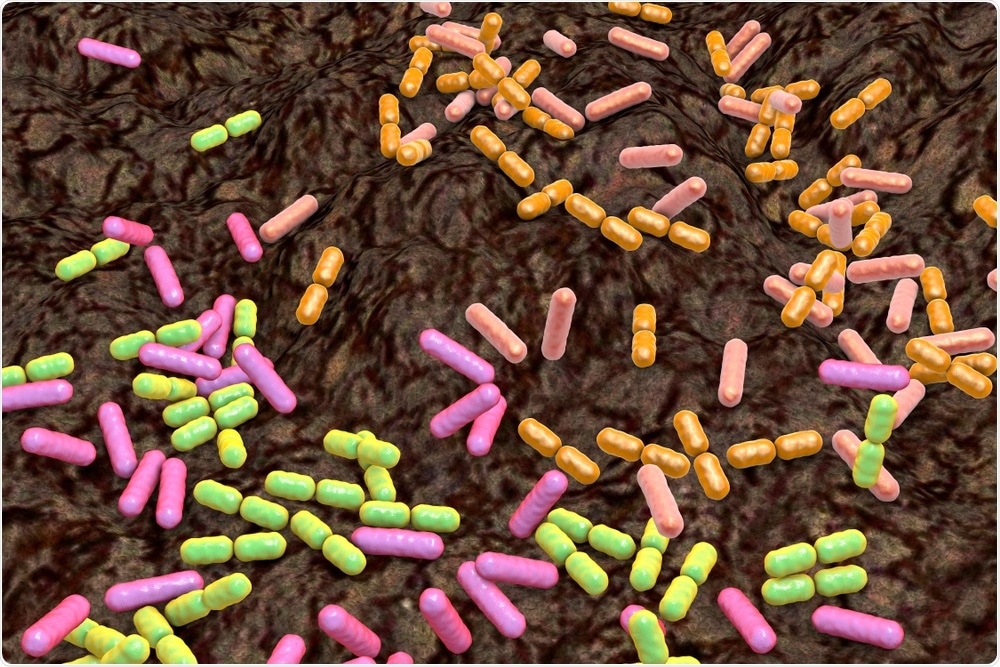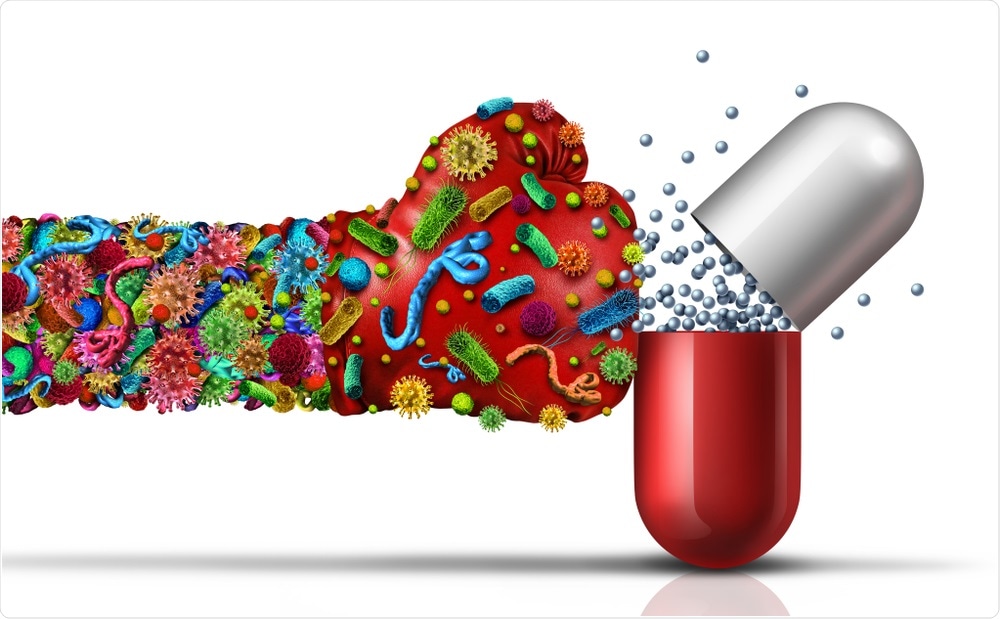In this interview, AZoLifeSciences speaks to Dr. Christophe Corre about his latest research that investigated soil bacteria and how it could be used to produce antibiotics.
What provoked your research into producing antibiotics?
Since I started my Ph.D. studies, I have been particularly intrigued by the complex natural products that bacteria can make. I was initially interested in understanding how bacteria assemble complex molecular structures from simple building blocks. Remarkably, most of these molecules remain too challenging to be made using synthetic chemistry; we rely on bacteria, most often soil bacteria, to access these invaluable products.
In fact, soil bacteria have been the most prolific source of antibiotics for decades and, to this day, more than 70% of clinically-approved antibiotics originate from Actinobacteria. Over the last 10 years, our research has moved into understanding how the production of antibiotics is regulated in these micro-organisms.

Antibiotics. Image Credit: nokwalai/Shutterstock.com
How are antibiotics derived from soil bacteria and why are they difficult to find?
Soil bacteria are the most well-known antibiotic producers; however, bacteria inhabiting other environments (e.g. marine sediment, ant-associated) also produce antibiotics. They use specialized systems encoded in their DNA to make and secrete antibiotics, presumably to outcompete other bacteria living in the same environment!
Unfortunately, in a laboratory, it is often difficult to replicate the natural environment these bacteria live in. As a result, most specialized systems remain switched off and antibiotics are not produced in laboratory culture conditions, where the presence of other bacterial competitors cannot really be sensed for instance. and no antibiotic will be produced.
Can you describe how you carried out your latest research into antibiotic production in soil bacteria?
In our latest research, we aimed at understanding how antibiotic production is triggered in soil bacteria. From earlier work, we knew that Streptomyces coelicolor, our model organism, uses specific signaling molecules (microbial hormones), that the whole cell population can sense, to control the production of the methylenomycin antibiotics.
In this new study, in collaboration with colleagues at the University of Warwick and colleagues at the University of Monash, we synthesized a library of signaling molecule analogs to establish what are the key features required in these molecules to trigger antibiotic production.
We also looked at the direct interaction between these signaling molecules and the receptor protein, present inside every Streptomyces coelicolor cell and responsible for sensing the hormone. In the absence of the signaling molecule, the receptor protein is bound to specific DNA sequences which causes the specialized system for antibiotic production to be switched off.

Soil Bacteria. Image Credit: Kateryna Kon/Shutterstock.com
What did you discover?
By comparing the three-dimensional structure of the receptor protein bound to the DNA to that of the receptor protein bound to the signaling molecule, we have unraveled the mechanism by which binding of the hormone induces critical protein conformation changes.
As a result of these changes, the receptor protein can no longer bind the DNA and antibiotic production is switched on. Importantly, the mechanism we observed for this class of signaling molecule appears to be conserved across other classes in Actinobacteria.
What role did X-ray crystallography and cryo-electron microscopy play in your research?
X-ray crystallography has been essential for us to solve the structure of the receptor protein bound to the hormone while cryo-electron microscopy has been essential to determine the structure of the protein/DNA complex.
How could your research help to improve the manufacturing process of existing antibiotics and also help to discover new ones?
Our detailed understanding of the regulatory mechanisms involved in antibiotic production enables us to manipulate Actinobacteria genetic information and to rationally switch on the production of known and new bioactive natural products.
For instance, we, and others, are now in a position to engineer bacteria so that their receptor proteins become non-functional. In turn, these bacteria continuously produce antibiotics, independently of the presence of typically essential signals.
Do you believe that your research will help play a part in tackling antibiotic resistance?
Novel approaches to artificially turn on and exploit the specialized systems responsible for antibiotic production are expected to result in the discovery of much-needed novel classes of antibiotics.
Some of these new molecules, with putatively novel modes of action, are hoped to be active against antibiotic-resistant pathogenic bacteria and could play an important part in tackling antibiotic resistance.

Antibiotic Resistance. Image Credit: Lightspring/Shutterstock.com
What are the next steps in your research?
Genetic engineering of Actinobacteria remains time-consuming despite the advent of tools such as CRISPR-Cas9 based vectors. We are currently developing novel strategies to increase the throughput of rationally turning on silent specialized systems to discover increasing numbers of antibiotic-like molecules.
We are also looking into exploiting the microbial hormone-dependent switch characterized in our last study as a tool to control other processes than antibiotic production in Actinobacteria and other micro-organisms.
Where can readers find more information?
About Dr. Christophe Corre
Christophe Corre is an Associate Professor in Synthetic Biology in the School of Life Sciences and the Department of Chemistry at the University of Warwick, UK.
His research group is particularly interested in understanding and exploiting bacterial transcriptional regulation for the discovery of novel biocatalysts and novel natural products.
Christophe received his education in Biochemistry and Molecular Biology at the University of Nice in France. He then carried out work on antibiotic biosynthesis for which he was awarded a Ph.D. in Chemistry at the University of Exeter, UK. He then moved to Warwick in 2004 to work as a postdoctoral research fellow in Prof. Greg Challis's group. In 2010, Christophe was awarded a Royal Society University Research Fellowship to unlock the production of novel microbial antibiotics and to start his independent research group at Warwick.